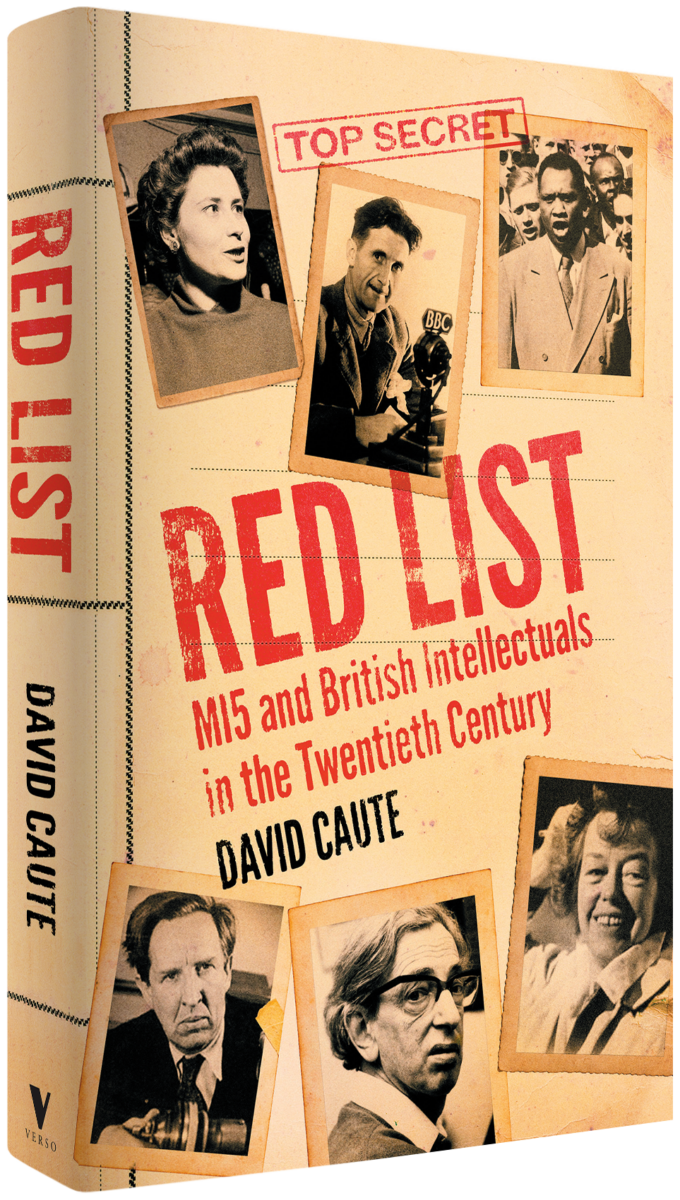This book is based primarily on files released to the Public Record Office, which are usually only released when a person dies, so it does not deal with recent events. This is not to say that it is not fascinating to those who were present when these events occurred. More importantly, it gives activists the truth about the measures the state takes to defend the status quo.
The advantage of it being written by David Caute is that he has lived through much of this twentieth-century history and is able to use his knowledge to explain and fill in the gaps. He also shows the cover job that the official history of MI5, published in 2012, does. The disadvantage is that he hardly covers the secret services’ intervention in industrial struggles, but that obviously requires another book.
The main substance of the book is its coverage of the Communist Party, from its birth, its supporters and suspected fellow travellers. This goes from actual spying for Russia to simply the actions of supporters of the ideology.

Particularly in the 30s, there was a great intellectual upheaval with the depression and the rise of fascism. During the Spanish Civil War, the Republican side got a lot of help for its fight for democracy and social justice. There were critics of Russia in this, but large numbers were sympathetic to what seemed like an alternative in Russia. It seems surprising to us today as to how gullible many of these were, often going to Russia and not seeing what Stalin was doing. It seems that it took the uprising in Hungary to shake some of them, like Christopher Hill. With a small group, he moved a resolution at the CP Central Committee condemning the crushing of the uprising. Only after this did one Jewish Central Committee member inquire as to why they had not condemned the cessation of Yiddish publications and the closure of Jewish cultural organisations in the late 1940s. The documents released cover details of these events in the CP.
The book shows the incredible level of phone tapping, letter opening, and bugging that took place, and it shows that several of these CP’ers had a number of files open on them. Caute quotes the fact that at one point it was estimated that MI5 had files on 2 million people. Remember that this was before the internet and before much more sophisticated weapons were open to the secret state.
The book is divided into sections, such as Theatre, Film Music, History, Academics, Black Liberation, and Africanists. It covers independence activists from abroad, many of whom were educated in the UK.
It has a big section on science and the CP’s squirming on supporting the fake Stalinist-supported ideas of Lysenko. It shows how lawyers were illegally bugged and the BBC monitored and controlled.
It shows the activities of the state in demanding the exclusion, on radio or TV, of left-wing people, playwrights, etc. The BBC was, at leadership level, quite keen to help, but sometimes departments refused. Some of the resistance to the sacking of CP’ers occurred during the war, when their scientists were useful to the military machine. This even incurred costs in the intelligence departments. Again, think about what happens now behind the scenes.
More recently, when the influence of the CP has waned, it has been the radical left that has come in for treatment. When “Play for Today” was at its best, for example, producers and playwrights were watched and put on a blacklist. It was not always immediately successful, but in the end it usually was. People like Kenneth Trodd and David Mercer, Ken Loach, and Roy Battersby experienced such treatment at the hands of the state.
Then in politics, Tony Benn had everything tapped; even Wilson had a still-unreleased file on him. Callaghan demanded that MI5 produce the files for the leaders of the T&GWU and the AUEW at the time of the 1970s struggles.
This is a very interesting book for political activists, which may be what we expected and maybe even knew, but it does no harm to confirm this and perhaps add to one’s knowledge of the history of struggle. You can also see what the eco-activists, anti-racists, and anti-imperialists are having done to them today.
Red List: MI5 and British Intellectuals in the Twentieth Century by David Caute published by Verso books.

